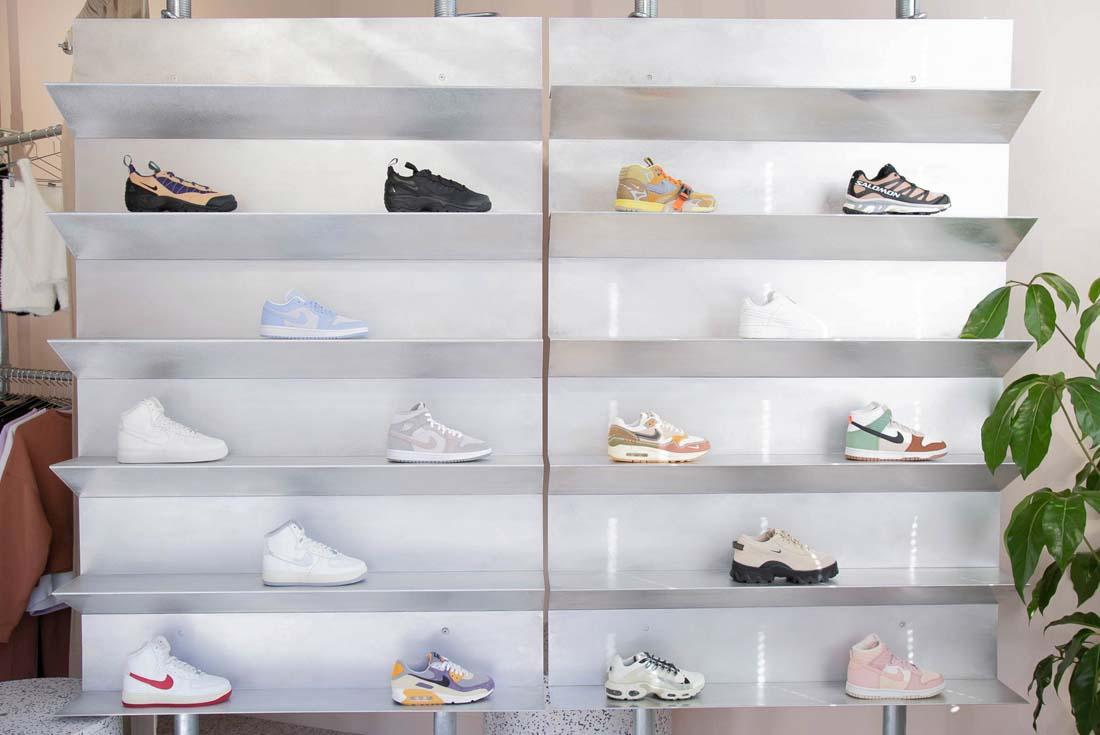Finesse Founder Murata Prajumas is Focusing on What Matters
It was a burning desire for increased inclusivity and a lack of accessible sizing in the sneakerspace that fuelled Murata Prajumas to found Finesse. Since 2016, these have been key priorities for the company, with the business manifesting this energy from digital-only to a bricks-and-mortor store in 2018, giving women a physical space to immerse themselves in. saw Finesse pack up the first shop, with the grand opening of their earlier this month. Prajumas has ensured that Finesse continues to operate consciously on multiple levels – resetting the pace and reducing their physical footprint, with subtle considerations which are insightful and also emulate the future of mindful purchasing. Check out Sneaker Freaker's conversation with Prajumas below.
Why is it important to you that Finesse’s offering is women’s focused?
Sadly, women still lack representation in the world of sneakers and having a space that’s safe and accessible for women, continues to be an important value for Finesse. We’ve always tried to challenge the traditional perceptions of what women are looking for, and ironically, it’s not just women’s focused collections, it’s access to the same styles as everyone else. Sneakers don’t have to be gendered. Finesse is proud to be able to utilise our access to wider size ranges and gender diverse collections to cater to everyone.
When planning to open the new store, what were the key factors that you took into consideration?
We took the time to be introspective and assess our values, particularly around what matters most in a post-pan retail world. With consumers using online channels more than ever before, we wanted to reset the pace, reduce our physical footprint and step up the in-store experience.
We also wanted to keep things local. The new store is set within a small corner terrace shopfront in the heritage lined neighbourhood of Collingwood. The intimate space means we're better able to attend our customer’s needs, while shortened opening hours and a considered and curated range means a fresh selection every visit.

In your opinion, how has Melbourne’s local sneaker culture evolved over the past few years?
After a long period of lockdowns, where everyone was treating themselves to some much-needed online retail therapy, people are starting to be more selective about what they’re purchasing. Combine that with more awareness of the impacts of climate change, waste and overconsumption, long-time sneaker enthusiasts and newcomers alike are focusing more on old and future classics and not as much on fast trends.
Looking forward, what are some positive changes that you’re hoping to see in the sneaker industry?
Diverse representation at all levels of the industry is the only way we will see better outcomes for everyone. As I’ve mentioned in the past, accessibility is key, so I’d love to see a move towards extended sizes across all releases.
